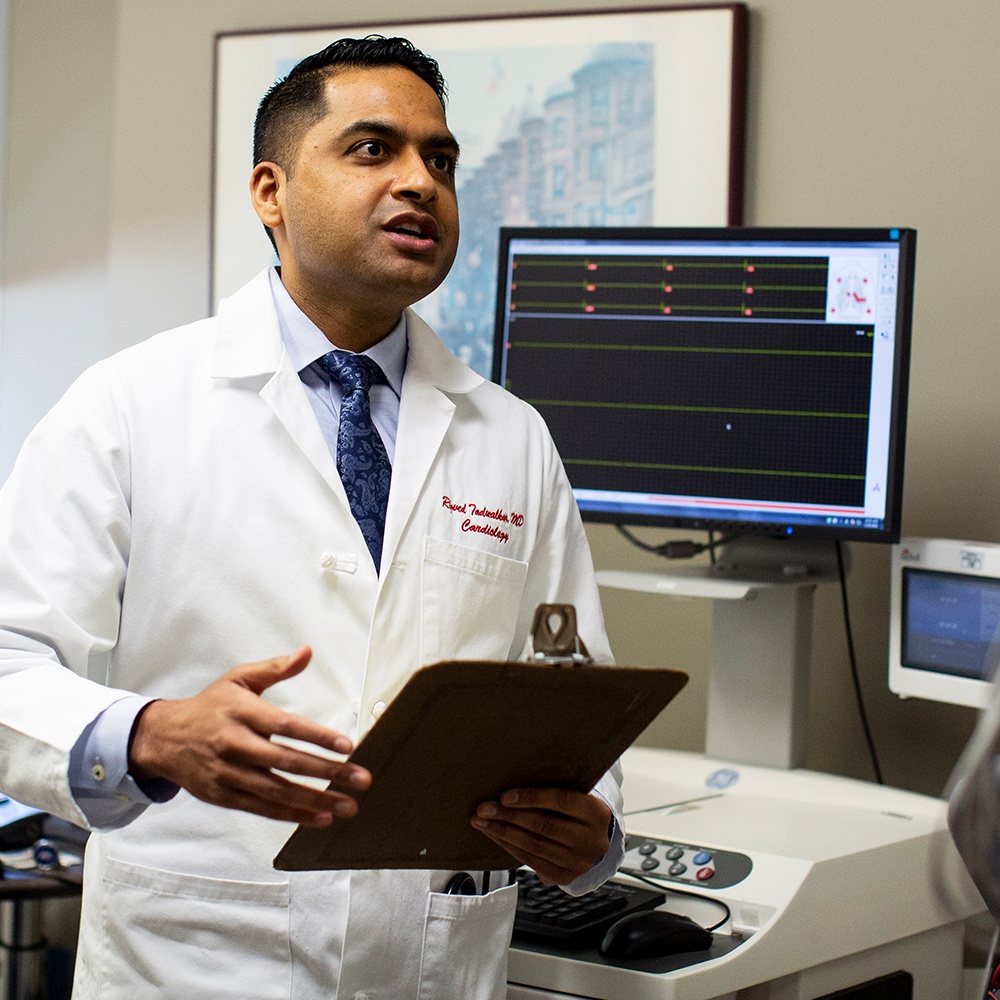Electrocardiogram

Overview
What is an Electrocardiogram?
An electrocardiogram (ECG) records the electrical activity of your heart to diagnose common heart problems. An ECG can show how fast your heart is beating, if your heartbeat rhythms are steady or irregular, and the strength and timing of your electrical impulses. An ECG is a painless, noninvasive test that is often part of a routine physical checkup, and usually done in your doctor’s office or clinic.
Your doctor may also recommend a Holter monitor or an event monitor. A Holter monitor is a small wearable device that records your ECG on a continuous basis for 24 to 48 hours. An even monitor is a similar device as the Holter monitor, but you wear it for an extended period of time, up to 30 days. This allows you to record your heart’s electrical activity each time your notice a symptom.
Why
Why an Electrocardiogram?
Your doctor may recommend an ECG if:
- You have chest pain.
- Shortness of breath.
- You have dizziness or lightheadedness.
- Detect if you’ve had a previous heart attack.
- If you have a family history of heart disease.
- See if you have ischemia, which is poor blood flow to your heart muscle.
- See how well your pacemaker is working.
- Check your heart rhythm.
- You have weakness and fatigue.

Risks
Electrocardiogram Potential Risks and Complications
An ECG is a safe procedure that has no risk of electrical shock since it does not produce electricity. The test only records the electrical activity of your heart.
Prep
Preparing for an Electrocardiogram
There are no specific preparations for an ECG. It is suggested that you avoid greasy creams and lotions that day, which can interfere with the electrodes making contact with your skin.
What to Expect
What to Expect During an Electrocardiogram
During an ECG, you will be asked to lie down and several areas on your arms, legs and chest will be cleaned. Up to 12 electrodes will be attached and the test will begin to record your heart’s electrical activity either on paper or a monitor. You will need to remain still since moving or talking may distort the results. A standard ECG takes only a few minutes, and you should be able to go back to your normal activities. Depending on the results, your doctor may order other tests.

Specialists